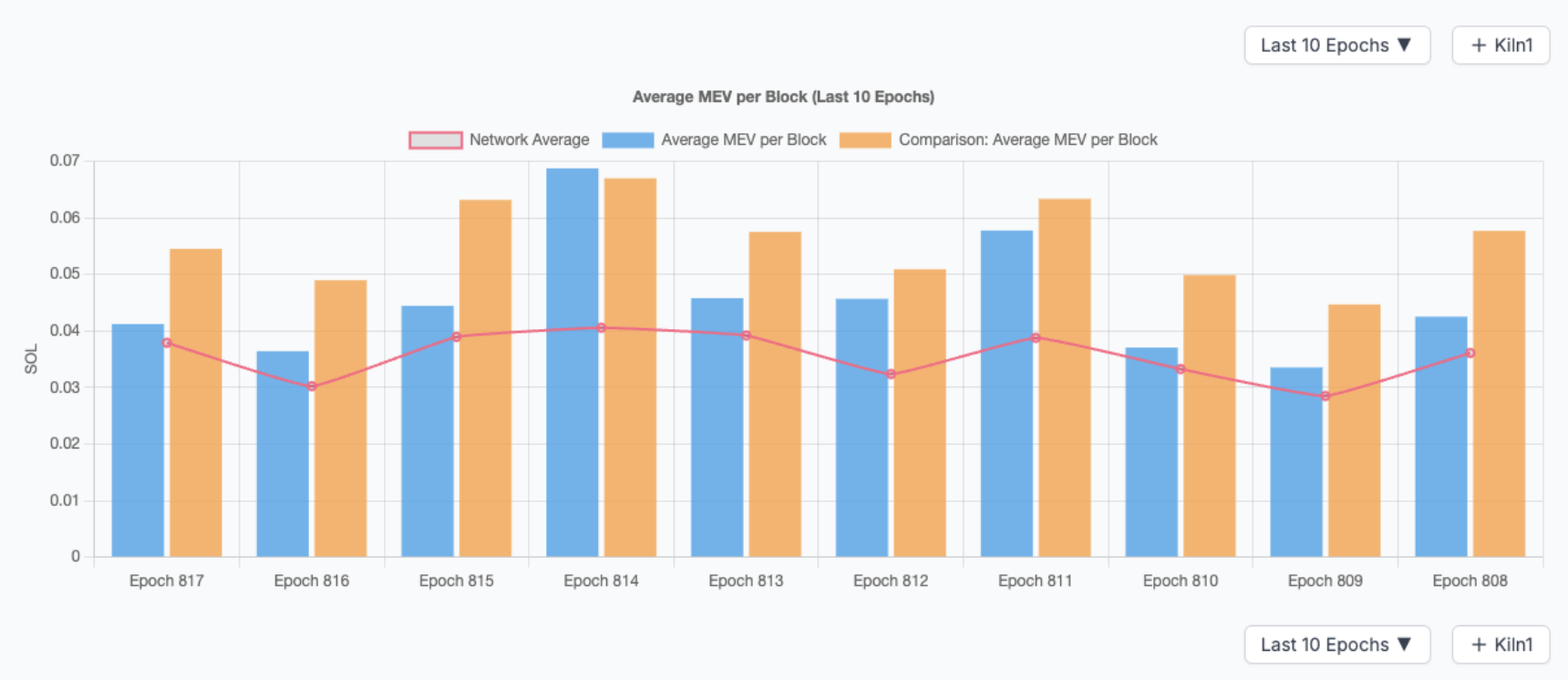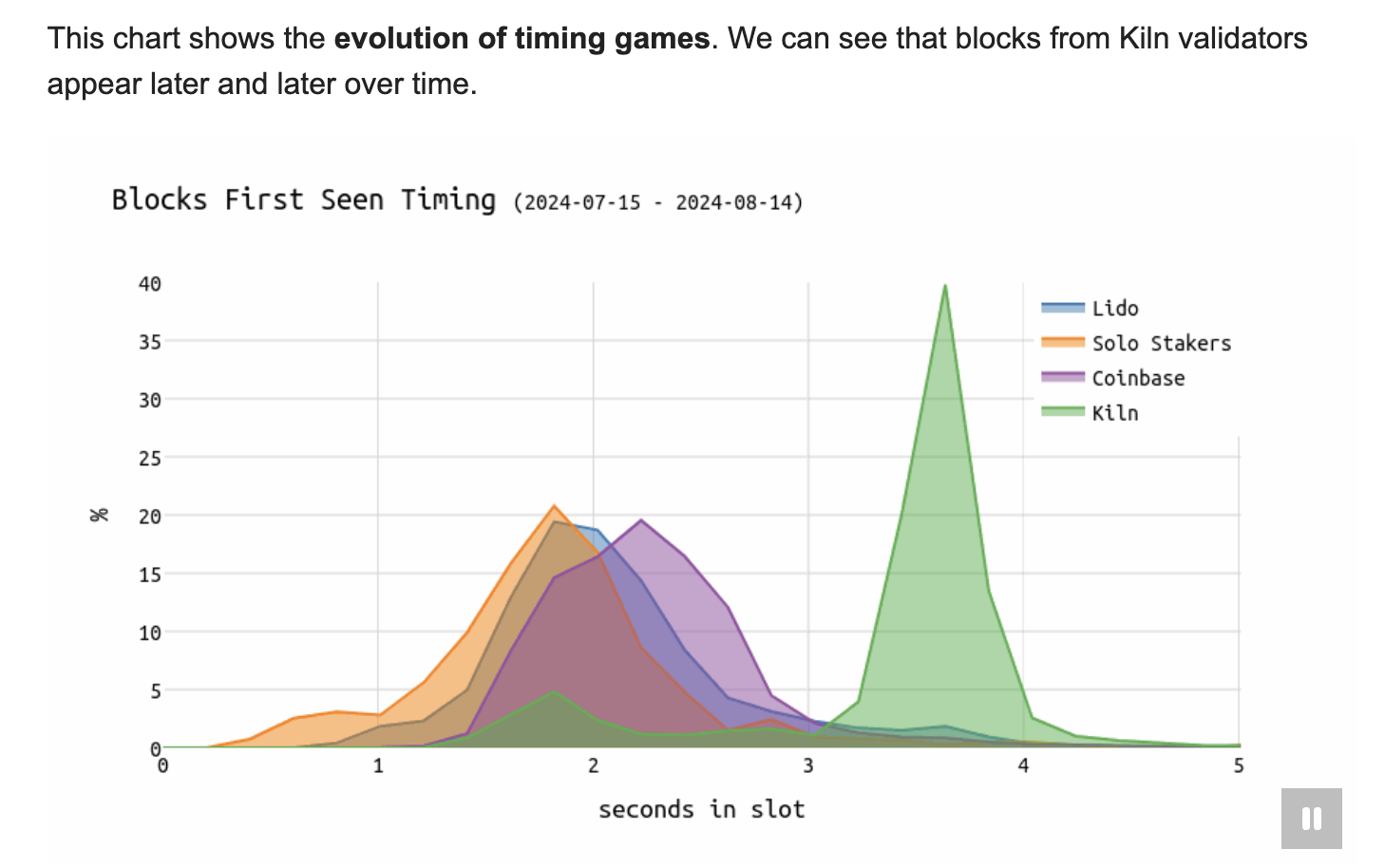
Kiln Under Fire for Sabotaging Solana's Performance - Why Delay Block Times?
What can be done to stop discouraging validators from slowing down Solana?
- Published: Jul 16, 2025 at 19:52
- Edited: Jul 16, 2025 at 20:41
Solana has adopted the “IBRL” mantra in recent times, with the community dedicating considerable resources and focus towards increasing bandwidth and reducing latency.
However, not all validators seem to be on board with this line of thinking. Onchain data indicates that a small group of operators are deliberately delaying block times to earn greater rewards at the expense of the Solana network itself.
How can validators benefit from slowing down the chain? Who are the biggest perpetrators, and what can be done to resolve the problem?
Sluggish Validators “Steal” Rewards
A disturbing trend has emerged among some of Solana’s biggest validators. Despite securing a network celebrated for its unrivalled performance, certain operators are intentionally stretching block time to capture more transactions and earn greater yields.
According to research conducted by Staking Facilities Head of Infrastructure Matthias Schmitz, sluggish validators (Orange) appear to consistently generate significantly higher rewards than the average operator. In this example, the Kiln1 validator regularly earns over 20% more yield than pumpkin (Blue), which runs the revenue scheduler.

In an exclusive comment to SolanaFloor, Sol Strategies CTO Max Kaplan decried intentional block time inflation, arguing that more needs to be done at a protocol level to discourage validators from operating in a way that delays the network.
"When a validator delays block production, they are acting in a greedy manner. By doing this, they put themselves at an advantage economically because they have more time to process incoming transactions which leads to them producing more profitable blocks.. In order to stop this, more needs to be done to enforce slot times in protocol. MCP (multiple concurrent leaders) could have some affect on this as well when launched." - Max Kaplan, Sol Strategies CTO
Network contributors from across Solana have echoed Kaplan’s sentiment. Solana co-founder Anatoly Yakovenko implored staking providers like Marinade and Jito to “nuke them from orbit”, while other reputable staking services like Aero declared that “any validator found to be intentionally inflating block times will be removed from the Aero validator set without warning.”
Speaking with SolanaFloor, Seb Moriarty, CMO of Phase Labs, AeroPool’s parent company, also argues the importance of standardized, protocol-level solutions.
“Something needs to be done on the protocol level about this. Timely Vote Credits were created to prevent validators from delaying their voting to reduce the risk of voting on a losing fork, which could maximize their vote credits and inflation rewards. However, it does not address validators delaying block production to capture more high-value transactions for higher transaction fees. Despite TVC’s implementation, validators can still delay block times for profit without violating TVC rules, as long as their votes are submitted quickly once the block is produced.” - Seb Moriarty, Phase Labs CMO
Moriarty asserts that a “system similar to TVC is needed to penalize validators for purposely delaying block production”, but recognizes the constraints that geographic distribution might play in this solution.
Familiar Territory for Kiln
For some of the biggest perpetrators, deliberately delaying block times is no new thing. In August 2024, Ethereum-based analyst Nero_ETH published research suggesting that Kiln is known for “pushing timing games the furthest” in the Ethereum staking landscape.

Solana Compass, a prominent source of onchain data known for ranking validators based on behavior, has flagged Kiln1 for sluggish median block times. While to the naked eye, a discrepancy of ~100ms looks insignificant, this can harm onchain market conditions.

What’s the Solution?
While Kiln and other lagging validators are able to farm boosted yields with impunity, Solana’s validator community is yet to come up with a unified response.
Kaplan is adamant that maximum slot times need to be enforced at a protocol level, but such a fix is unlikely to be implemented in the immediate term.
“Slot times right now on Solana are really supposed to be ~400ms but there's not really anything that enforces this at the protocol layer. Ideally, if a validator takes longer than ~400ms, the network just marks them as skipped and moves on. This is not really being done right now though.” - Max Kaplan, Sol Strategies CTO
AeroPool’s swift decision to remove perpetrators from its validator set helps to raise awareness. However this line of action requires support from similar operators to more widely discourage time-based block time inflation. Gabriel.sol, Phase Labs Head of Staking, asserts that the wider Solana community needs to take a more grassroots approach while waiting for protocol-level solutions.
“This behavior by validators won't be a problem in Alpenglow. Right now the best option is to socially pressure bad actors and talk to operators you know personally.” - Gabriel.sol, Phase Labs Head of Staking
Meanwhile, Triton representative Steve Cleanbrook suggested using Triton’s Yellowstone Shield program to allow users to blacklist certain validators from picking up their transactions.
All approaches theoretically help to mitigate network delay, but there is no silver bullet. However, $SOL stakers can still opt to ‘use their stake as a force of good’, and support validators aligned with Solana’s continued growth.
Read More on SolanaFloor
What is Metaplex Genesis?
Metaplex Unveils Onchain Token Offering Stack - When’s the First Launch?
What is a Solana Validator?



